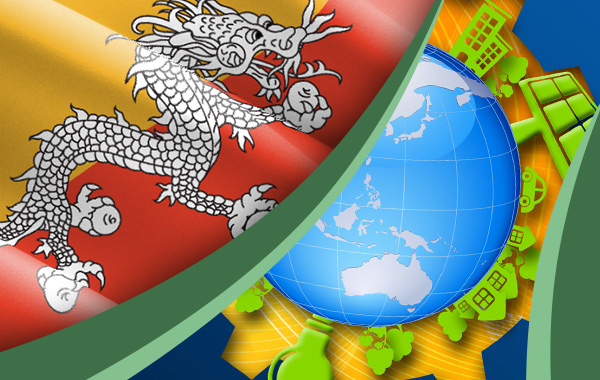TVET Pathways to Sustainable Development
1617/ICPBTN 17-21 October 2016, Bhutan In-Country Program |
 |
| Program Focus |
Finding ways of living and working sustainably has become the major challenge in the world today. It has become a challenge for most countries around the world to maintain the quality of life of their people with reasonable needs and wants without exploiting the natural resources. This has threatened to meet the needs and wants of future generations. Achieving the goal of sustainable development is not as simple as it may seem, it requires an outgrowth effort from every person individually and collectively. Sustainability is achievable only if there is a fundamental change in one’s attitudes and behavior in our personal lives, in our community activities, and in our workplaces. It is felt necessary to act immediately and move ahead, in a spirit of exploration, experimentation, and collaboration with possible range of partners, so as to contribute through education and training to a sustainable future. It also demands continuity of resources including human resources in the government policies.
Bhutan has seen rapid socio-economic development over the last decades. However, this has led to emergence of diverse challenges. These social and economic trends suggest that education and training must promote an understanding of sustainability for the stewardship of resources, the environment, and health to become more effective. Thus, orienting TVET towards sustainable development is felt necessary so that it can be focused on imparting the skills and competencies that will be sustainable in the long-term for job shifts and technological changes.
| Objective |
The objectives of the In-Country Program are to:
- Develop current understanding on sustainable development in the context of TVET
- Appraise strategies and issues in integrating sustainability aspects into TVET
- Develop awareness about changing workplace requirements for green jobs
- Develop frameworks for sustainable education
- Develop concepts on greening of TVET institutions and green auditing
- Develop concepts on green production and consumption
- Understand social entrepreneurship to promote eco-friendly technology-based solutions
- Develop action-based plan for more meaningful interventions and implementation
| Key Components |
The main contents of the program are:
- Blended learning including face-to-face and special lectures, video presentations, and interactive web-based teaching and learning systems
- Case study and experience sharing
- Group tasks and discussions
- Study visits
- Action planning
| Target group |
25-30 trainers and managers from technical training institutes (TTIs), private training providers, relevant officials from MoLHR, and other relevant stakeholders.
| Collaborating Partner |
Department of Human Resources, Ministry of Labour and Human Resources, Government of Bhutan
